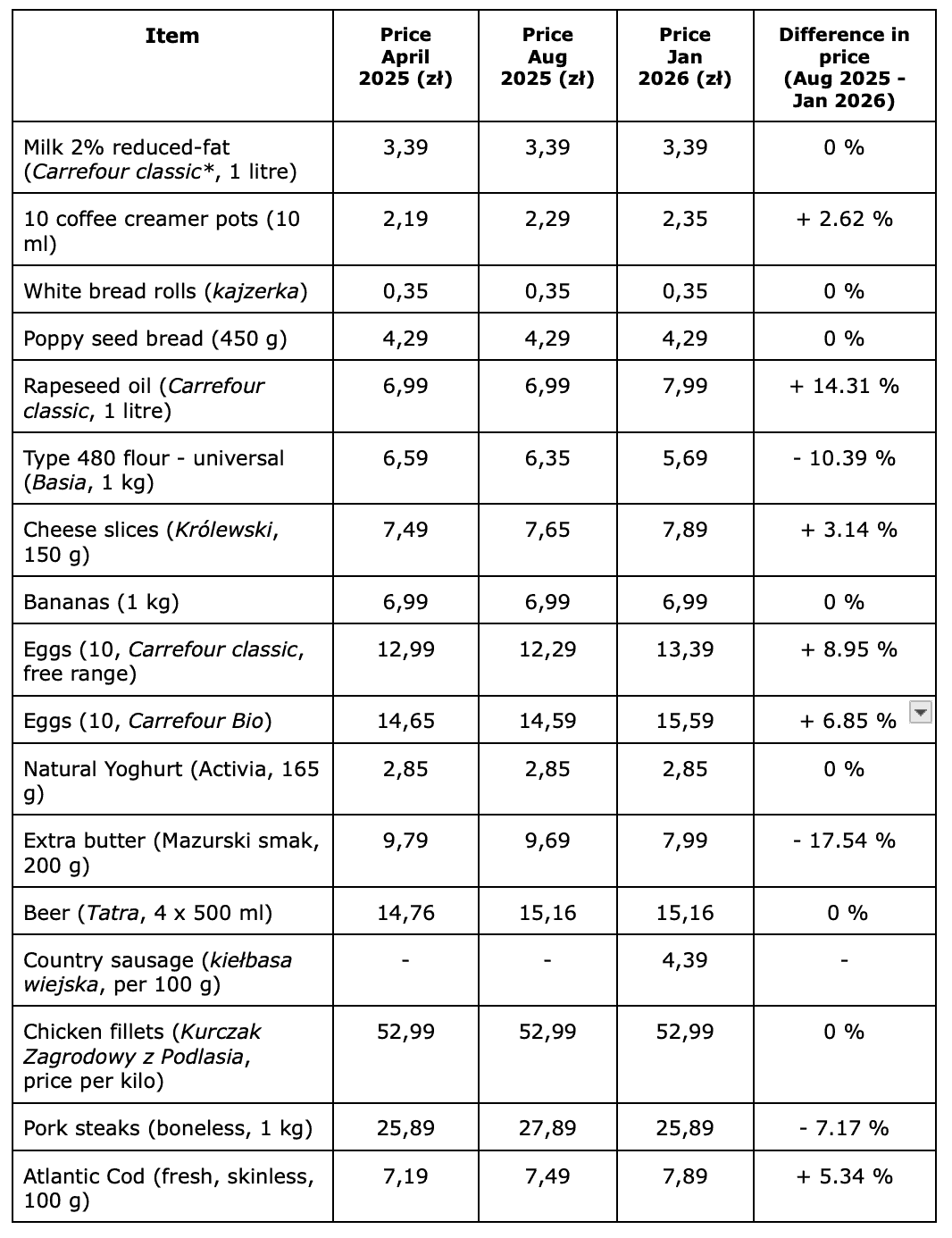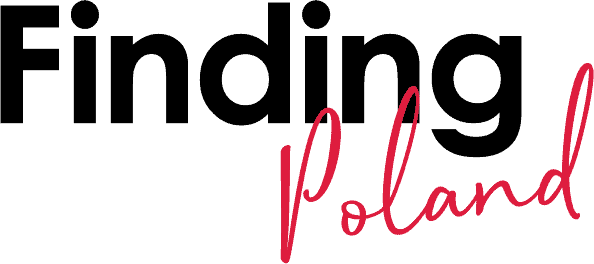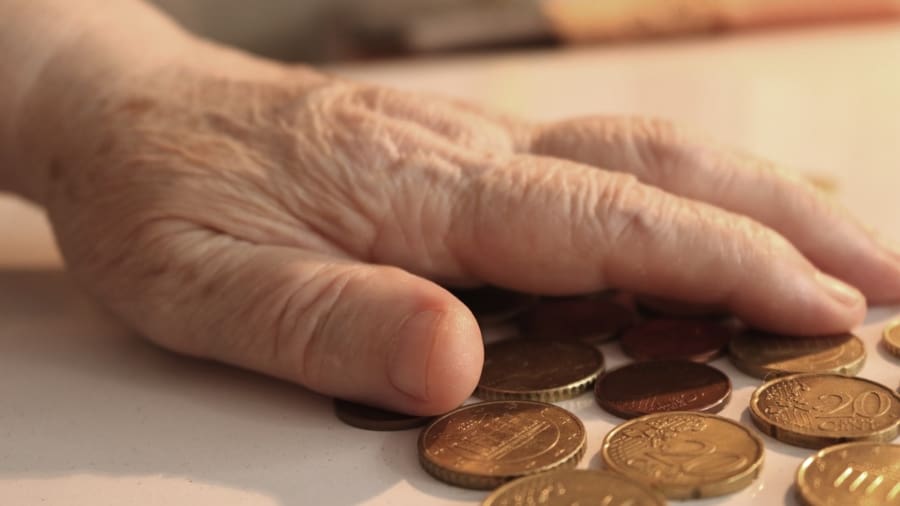This is not the first time I’ve written a piece on Finding Poland which covers the cost of living in Poland per month.
In another post, I have provided some insight into the average living cost in the city I live in – Łódź. In that post, I also compare the cost of living in Łódź with the average monthly living cost in Gdańsk. I regularly update that post so do check it out for up-do-date information.
In general, I think that the cost of living in Łódź is generally representative of the cost of living in most other major Polish cities. The only exception is perhaps the cost of renting an apartment, which may be around 400-600 zł less in Łódź than in cities such as Gdańsk and Kraków.
Do bear in mind that the estimates of living expenses I provide are extremely conservative.
A Breakdown of the Cost of Living per month in Poland
*The cost of living estimates I provide in this post are for a couple with a teenage child.
Let me begin with the area of apartment rental in Poland.
Apartment rental with a parking space
As of the end of January 2026, one would have to pay around 3,000-3,500 zł to rent a well-kept two-bedroom apartment in Łódź with a parking space as well. I reached this figure by checking all of the two-bedroom apartments currently available for rent on Otodom. Otodom is the most well-known online property portal in Poland.
If you have kids and would like to rent out a three-bedroom apartment in a newer building in Łódź with an area of more than 70 m2, you’ll have to pay at least 3,500 zł. When it comes to renting a three-bedroom flat in the centre, be prepared to fork out as much as 4,500 zł. This figure can reach as much as 6,000 zł in new builds.
For the purposes of calculating the monthly cost of living in Poland, let’s imagine that our couple will rent out the 66 m2 two-bedroom flat I’m currently paying rent for, together with a parking space. Based on current market trends in Łodź, the rent plus parking would come to:
3,300 zł.
Monthly utility bills
Now, we will add my monthly utility bills for you to get a much better picture of the cost of living in Poland per month.
Communal fees
The communal fees bill in Poland is called czynsz administracyjny. It covers elements such as electricity (inside the building), waste disposal, lift maintenance, the upkeep of green spaces around the building and water and canalisation.
My monthly communal fee in Łódź is 950 zł. Admittedly, I live in quite a prestigious building so it’s possible that this fee is on the high side for a 66 m2 flat.
950 zł
Internet
It’s not expensive to have high-speed fibre-optic Internet in your home in Poland.
I’m with the provider Orange.
At the time of writing, Orange is offering fibre-optic Internet with a speed up to 600 Mb/s for 75 zł a month between months 7 and 24 on a 24-month contract. There is no internet service charge for the first six months. However, there is an activation fee of 60 zł. There’s another fee of 4,99 zł for the modem.
You also get 47 TV channels (mostly Polish) thrown in with the offer.
If you opt for a no-contract internet plan, the internet service fee is 85 zł per month which is charged from the second month. Only the first month is ‘free’.
80 zł
Electricity
My electricity bill arrives every month.
My bill for the period from 12 November, 2025 to 8 December, 2025, came to 162 zł. That was for 120 kWh of electricity use.
My wife and I didn’t leave Łódź during that period. It’s also worth pointing out that we work from home and cook most days.
165 zł (per month)
Mobile telephone
Frankly, I’ve never been interested in comparing offers provided by mobile phone operators in Poland.
I am with PLAY and sometimes pay a prepaid amount of 30 zł per month which gives me free calls and text messages. I also get 30 GB of Internet. I’m not exactly sure whether 30 GB is a lot or not. However, I’m not one for walking down the street with my head stuck in my phone all the time, so I think it’s enough.
Play’s ‘L’ bundle, which costs 40 zł, comes with free calls and text messages, 50 GB of Internet and additional GB for a year if you provide consent to receive marketing offers.
120 zł (three people)
Grocery shopping in Poland
I visit Carrefour every four months or so to make a note of prices of staple foods for my post on food prices in Poland. Listed below are prices I recorded on 10 January 2026 compared with prices recorded in both August and April 2025:

At first glance, you’re probably thinking that some of the prices don’t look that steep. However, many of the items in the table above have gone up by at least 30% since the start of 2021.
Overall, I think it’s in the area of grocery shopping that the cost of living in Poland per month is biting many people. It’s the same in every country I suppose.
1600 zł
Restaurants and coffee shops in Polish cities
If you wish to eat out at a reputable pizza restaurant, indulge yourself in Polish cuisine or visit a pierogarnia (dumpling restaurant) a few times a month, your wallet shouldn’t take a hit.
One of my favourite places to eat out in Łódź is Cud Miód Fabryczna.
Looking at Cud Miod’s delicious menu, one can eat out well in Łódź for between 40-60 zł for most main meals, pizzas, pasta dishes and burger sets. Hence, for a couple with a child, it shouldn’t cost more than 250 zł for three meals and three soft drinks.
As for coffee, the price of a cappuccino in most places in the centre of Łódź is around 15-16 zł.
On the basis of eating out and visiting a cafe for coffee and cake once a month, I think that 350 zł is about right.
350 zł
Fuel and public transport in major Polish cities
It’s not expensive to buy a monthly pass to travel on public transport in Gdańsk and other major Polish cities.
At the time of writing, it costs 117 zł to buy a monthly pass valid on all days of the week to travel on regular, fast and night routes within Gdańsk city limits.
Surprisingly, it’s cheaper to buy a monthly travel pass in Gdańsk compared with the price in most other Polish cities, including Łódź. I have to pay 168 zł for a monthly ticket in Łódź. However, the public transport authority in Łódź provides passengers with the option to buy a 90-day ticket for 414 zł and a 12-month ticket for 1490 zł.
In December 2025, I paid 414 zł for a 90-day public transport pass to get around Łódź. It’s a lot less hassle to take a tram into town or a bus to other districts in the city, than it is to sit in traffic jams and worry about having to find a parking spot.
Let’s imagine that one half of our couple travels 15 km to and from work every day by car, and spends around 600 zł per month in total on petrol. Bear in mind that petrol prices in Poland seem to be lower than in neighbouring EU countries. The other half of the couple relies on public transport (138 zł per month on the basis of paying for a three-month ticket). As for the teenager who attends primary school, the cost of a twelve-month ticket in zone 1 is 144 zł.
750 zł
Comprehensive Car Insurance in Poland
In March 2024, I switched car insurance companies from PZU to Warta. I recently renewed my policy with Warta in March 2025. Warta’s offer for comprehensive car insurance for my 2020 Ford Kuga came to 3,008 zł. This was the fee for making a one-off payment. It would have been more expensive if I had opted to pay by monthly instalments.
I drive from Łódź to the Balkans a few times a year so I opted for the platinum (platynowy) variant of car assistance which gives me a bit more peace of mind.
I suppose it’s possible to grab yourself a decent comprehensive car insurance policy for around 200 zł a month if you don’t require the more expensive roadside assistance and car tyre insurance variants which I chose.
200 zł
Healthcare in Poland
My wife and I currently have access to public medical services offered by the National Health Fund (Narodowy Fundusz Zdrowia; NFZ). Hence, we have peace of mind knowing we can get emergency healthcare should we need it.
As for going to see a doctor, we tend to rely on private specialists. Most specialists in Łódź charge around 200-250 zł for an appointment.
I have some experience with searching for prices for private healthcare packages.
A few years ago, I was in contact with an agent from the healthcare provider, Medicover.
He was determinedly trying to sell me the provider’s Elite + package for several weeks. This package offers comprehensive outpatient care, unlimited home visits, hospital treatment and medical care overseas.
I was quoted a price of 653 zł per month to cover both my wife and me.
I didn’t doubt that the package was “fully comprehensive”. However, I was not willing to pay that sort of money.
In the future, we may look into buying a cheaper basic medical package which provides ambulance and emergency services and same day visits at Medicover Express. Hence, the ideal package to cover all that would be Standard+.
The annual fee for two adults is currently 2,667.60 zł (as of August 28, 2025). This has gone up by around 700 zł since August 2021. Add the fee for a teenager into the equation and the price goes up to 3720,60 zł per year.
If you are employed in Poland under a full-time employment contract (Umowa o pracę), you will be covered by the NFZ via the health insurance contributions you have to pay.
310 zł per month (medical package for two adults and a teenage child)
Adding things up
First of all, let’s recap. Our imaginary couple with a teenage child are renting a 66 m2 flat in an apartment complex in Łódź. The building was constructed in 2011. One half of the couple travels to work while the other half relies on public transport. Regarding the teenage child, his parents pay for a twelve-month public transport ticket which comes to 144 zł.
I will now add things up so you can get a better sense of the cost of living in Poland per month based on two adults with a child:
- Rent with a parking space – 3,300 zł
- Communal fees – 950 zł
- Internet – 80 zł
- Electricity – 200 zł
- Mobile telephone (family of three) – 120 zł
- Grocery shopping – 1600 zł
- Restaurants and cafes – 350 zł
- Petrol and monthly public transport travel passes – 750 zł
- Comprehensive car insurance – 200 zł
- Basic private healthcare package – 310 zł
TOTAL = 7,860 zł
Frankly, I think I’ve been quite modest with some of the estimates I’ve provided. Remember that you could easily add another 600-1000 zł for renting an apartment in cities such as Kraków, Warsaw and Gdańsk. Moreover, I’m sure that many people like to go out for a meal and for coffee more than once a month. I also believe that the estimate for fuel expenses and monthly grocery shopping may also be on the low side.
Of course, you would need to add the cost of cosmetics and other leisure activities to the total estimate. Let’s not forget that I haven’t considered the cost of buying clothes and all the other equipment and materials a child needs for school.
Overall, I may conclude that most Polish couples (with or without children) might struggle to get by if only one person works.
Further reading
It’s certainly not all doom and gloom when it comes to monthly living expenses in Poland, as I write about in this post:
What is cheap in Poland?
This post details my personal fixed and variable monthly expenses:
Typical Monthly Expenses for a Childless Couple in Poland

